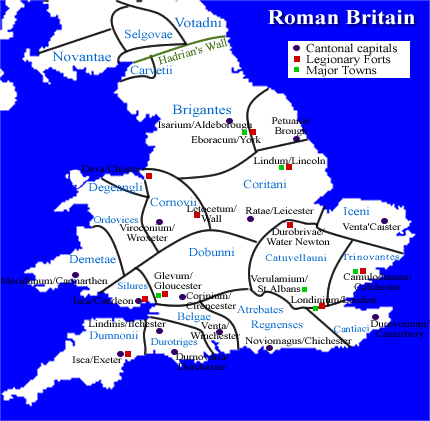Frisian words of West Germanic origin
Buter
Brea
Tsiis
Miel
Sliepe
Boat
See
Stoarm
The 5th Century AD
Jutes, Angles and Saxons
500 years earlier the Romans had invaded Britain.
Celtic words that survive in Modern English
Crag
Thames, Avon, Dover, London
Anglo-Saxon place names
The –ing in modern place names like Hastings, Dorking, means “the people of”
The ton in Bridlington and Chessington, means “enclosure or village”
The ham in Birmingham, Cheltenham and Tottenham means “farm”
7th Century AD
Some Latin words entered the vocabulary:
Altare
Mass
Monk
Verse
The Latin alphabetic script was also introduced.
The Germanic invaders had brought runes with them.
Lindisfarne Gospels were created in the 8th Century on the island of Lindisfarne.
The use of “son” in surnames is comes from Norse:
Nicholson
Harrison
Robson
Dickenson
Watson
Johnson
Richardson
These names are still more common in the areas that were settled by the Danes.
The sk sound is characteristic of Old Norse:
Skor
Skye
skil
Other Norse words absorbed into English include:
Angr
Knif
Vindauga
Sometimes the English and Norse words for the same thing were both retained, but each gained a slightly different meaning:
Old English:
Craft
Hide
Sick
Old Norse:
Skill
Skin
Ill
In this way the richness and flexibility of the vocabulary increased.
Other Norse words:
Law
Egg
Husband
Leg
Die
Ugly
They
Their
Them
Beowulf
"bone-house”
“War-board,
“joy-wood”
1066
Enemi
Castel
Armee
Archier
Soudier
Garison
Garde
French also spelled out the new social order:
corune
Trone
Cort
Duc
Baron
Nobilte
Paisant
Vassal
Servant
Governer
Liberte
Autorite
Obedience
Traitre
In Law:
Felonie
Arester
Warant
Justise
Juge
Juree
acuser
aquiter
sentence
condemner
prisun
gaiole
Food - cuisine
Porc
Saussiche
Bacun
Fruit
Orenge
Limon
Grappe
Olive
Boef
Salade
Diner
Not one of the great landowners spoke English.
Written English disappeared.
The language was forced underground.
Ox / Cow
Beef
Sheep
Mutton
Calf
Veal
Deer
Venison
Pig
Pork
The French influence over English is enormous in terms of vocabulary
but not in terms of grammar.
The majority of French words don’t replace Old English, they stand alongside them.
E.g.. Apple
Early 13th century
trade was on the increase.
The wool trade made parts of England rich.
London’s population would double over the century.
The English speaking middle classes picked up many French words.
Merchant
Money
Price
Discount
contract
Partner
The English middle classes also adopted French names:
Richard
Robert
Simon
Steven
John
Jeffery
William
But Normandy became part of the smaller empire of France and the Normans of England lost their connections across the channel.
French speakers in England began to take English wives and thus married into the language.
Yet even as French began to wane as a language, it’s vocabulary poured even faster into English, partly because French was the international language of trade.
Also because of this, French became a conduit for words from the markets of the East: Arabic words like
Saffron
Mattress
Hazard
Alchemy
Amber
Syrup
Checkmate (the king is dead)
“Almost synonyms”
Swan
Signet
Ask
Demand
Bit
Morsel
Wish
Desire
Might
Power
Room
Chamber
Answer
Respond
Begin
Commence
Freedom
Liberty
The Black Death
In the mid 14th Century the Black Death wiped out most of the nobility.
The Black Death meant the end of Latin, because so many of the Latin-speaking clergy died.
Most of their replacements were illiterate English speakers.
Wages rose.
The price of property fell.
The common people began to rise through society, taking their language with them.
In 1362, English was acknowledged as a language of official business.
Court cases could be pleaded, debated and judged in English.
King Henry IV (1367 –1413) was the first English speaking King in 300 years.
The Decameron by Giovanni Boccaccio- composed in the 1350s
Geoffery Chaucer
Geoffery Chaucer began The Cantebury Tales in 1387.
He was a Londoner with connections to the royal family.
He knew Latin and French, but he chose to write in London English.
It was a vibrant, cosmopolitan variety of English.
The characters in the tales, the pilgrims, are a cross-section of medieval society.














No comments:
Post a Comment